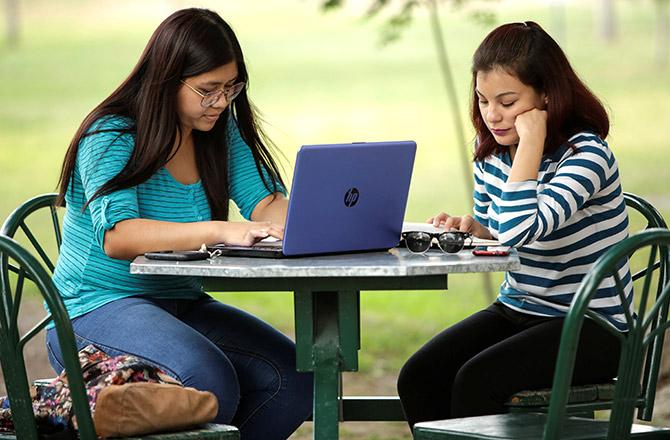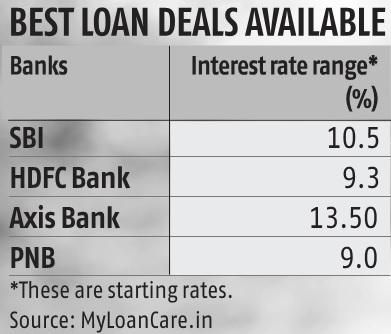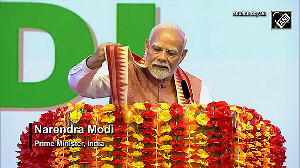'It reduces the immediate financial strain on your family and helps you take control of your finances without being dependent on your parents.'
Sarbajeet K Sen finds out more.

Admissions in colleges, especially the more expensive management courses, are around the corner.
Many parents would be wondering if they should opt for an education loan or use their savings to pay the fees, and other expenses of the course.
The answer is tricky.
Sometimes, the costs of the course and institute, especially if the child is going overseas, are so high that the salaried have no option but to go for a loan.
But many parents would also want to ensure that their child does not start the career with a loan.
"The primary factor to consider is the future demand of the education course you are taking the loan for. This is because ultimately, every loan is a liability that one has to service to maintain good credit history," says Bhupinder Singh, Founder, and CEO, InCred.
"This simple planning will ensure that there are no future financial complications for you and your child," Singh adds.
Seeking an education loan for admission to reputed institutes like IIT/IIMs or a leading foreign university is always easier, and gets better terms from lenders.
Loans are not cheap
An education loan is not limited to tuition fees, but can include the cost of accommodation, library fees, books, examination fees, and conveyance cost.
It will also include other costs essential to the course, such as the purchase of a laptop or equipment and educational tours.
These are floating rate loans, with the rate of interest ranging anywhere between 9 and 15 per cent, depending on the lender, the course and institution and amount of loan one is looking for.
The repayment liability is on the student after securing the job.
"Typically the repayment of an education loan starts six months after getting a job or one year after the completion of the course, whichever is earlier," says Adhil Shetty, CEO, BankBazaar.com.
"During the moratorium period, the interest incurred is added to the principle, and this way, the equated monthly instalment is fixed. During the moratorium, the borrower can pay only the accrued interest. This is advisable for keeping the EMIs low later," explains Shetty.

Savings or loans?
The decision would differ from person-to-person, depending on their financial capability.
But if the institute's placement record is exemplary, or the child is doing a specialised course that has a huge demand, there is no harm in taking a loan.
Other circumstances that one should consider is whether the retirement kitty will be adversely impacted.
Or, if there will be a shortfall in the future.
In such situations, taking an education loan makes sense.
However, there are certain advantages of going in for an education loan.
"It reduces the immediate financial strain on your family and helps you take control of your finances without being dependent on your parents. It also reduces any need to compromise on your education as it not only covers your course fee but other expenses as well, like exam fee, hostel fee, lab fee, books and others," says Gaurav Gupta, co-founder and CEO, Myloancare.
Apart from this, the benefit of taking an education loan as against paying from savings is the significant tax benefit available.
"There are certain benefits of taking an education loan for higher studies, even if the family can afford to pay on its own. Besides helping the student take responsibility, the interest paid on education loan is exempted from income tax under Section 80E of the IT Act," Bhupinder Singh points out.
"Also, it helps create a credit history that will be important later in life to access other financial products when the student completes education and starts working."












